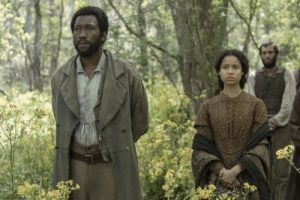(Akiit.com) Martin Luther King Jr. used to say that “ the arc of the moral universe is long but it bends toward justice.” Of course that arc is sometimes so long that it’s hard to see it bend. As someone who has been present at the making of much history and who now has the unique privilege to look back on it, I know better than most how history can inform the present and how forgetting our history comes at a terrible cost.
A week ago, we were honored to host the national premier of Free State of Jones here in Atlanta, a film that tells the story an interracial rebellion against the Confederacy from within. Newt Knight was a poor farmer from an area of Mississippi that owned few slaves and he was opposed to slavery and the slave-owning class. Knight (played by Matthew McConaughey in the film) led a rebellion against these slaveholders and continued to fight for racial justice all  through the turbulent era of Reconstruction that followed — allying with former slaves as they fought for the right to vote and participate in an economy that had been built by their labor.
through the turbulent era of Reconstruction that followed — allying with former slaves as they fought for the right to vote and participate in an economy that had been built by their labor.
Newt Knight was white.
When we engaged the struggles of the 1960s that culminated in the march on Washington we relied on alliances that crossed the color line and created a powerful coalition. Those alliances took courage on the part of our white friends just as it took courage for Newt Knight to stand up to the Confederacy and continue to fight white supremacists through Reconstruction, more than 100 years ago. The film shows the common ground between poor white farmers and enslaved people of color. And that common ground is and has always been a potent political force for change.
By the end of his life, Martin Luther King Jr. had come to realize that economic struggle, which crosses the color line was the unifying theme that would lend ultimate power to the movement. The Poor People’s March on Washington was the final focus of his life’s work. But this common ground and the potential for such a coalition is threatened now, not by the forces of racism and segregation, but from a kind of self-imposed segregation that sees such black-white alliances as diminishing of our cause. They are not. They are necessary. And they deserved to be encouraged or in the case of the film, remembered.
Free State of Jones also tells the truth about Reconstruction. It does not indulge the mythology that simple emancipation at war’s end meant true freedom. Far from it. It is perhaps the first film to show the bitter disappointment in the post-war years as the jubilation of victory gave way to the harsh reality that Confederates would return to power, institute sharecropping instead of slavery, penal servitude instead of simple servitude and the “apprenticeship” of minor children instead of more blatant “ownership.” When some in Congress tried to fight these events, the Ku Klux Klan rose up in force and there was no Northern will to combat it. So it is all the more remarkable that a white southern farmer stood up to this oppression even after the war when so many of his contemporaries would not.
We need more Newt Knights today. We need coalitions to combat the pernicious and ominous signs that appear around us this year. We need to work together to fight the newer forms of obvious oppression: discriminating against specific religions; targeting certain communities for surveillance; whipping up the fires of racial hatred and fanning those flames for political purposes.
I encourage you all to see Free State of Jones.
Columnist; Amb. Andrew J. Young
Official website; http://twitter.com/ambandrewyoung









Leave a Reply